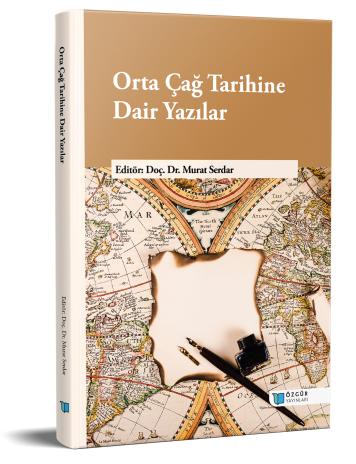
Turkish Presence in Gujarat Until the Establishment of the Turkish Sultanate of Delhi
Chapter from the book:
Serdar,
M.
(ed.)
2025.
Essays on Medieval History.
Synopsis
Gujarat, which has a very old past in the history of the Turks in India, remained under the raids and administration of various Turkish tribes and states until it was definitely conquered during the reign of the Sultan of Delhi, Alaeddin Muhammad Khalaji (1296-1316). Although the current sources suggest that the Turks' interest in this country began with the Sakas who came to Northwestern India in the first millennium BC, it is estimated that it goes back much further. There were also foreign tribes that came to this country other than the Turks. The Aryans, Alexander and his successors, the Persians or the Muslim Arabs are just a few of them. However, none of them left such a deep mark on the history of this country as the Turks did and in time they were all wiped out by the native Indian culture. Starting with the Sakas, during the Kushan, Hephtal, Ghaznavid and Ghurid periods, the Turks left permanent effects on the Indian state and social life in the religious, sociocultural and economic fields as well as in the military and administrative fields. So much so that the first name of this country, Gurceretra/Gurcaratra, is attributed to the Gujar/Gujar tribe that came to India at the end of the 5th century. Numismatic and epigraphic records determined in the region show that Turkish domination reached the ports of Gujarat from the Kushan period onwards. Indeed, with the domination of Saurashtra (Gujarat) during the reign of Kushan ruler Kanishka (78-106 AD), the maritime trade between India and Rome was carried out under the control of the Turks for a considerable period. In the meantime, the Kushan Empire, which also dominated the Silk Road trade in Turkestan, took control of the ports of Gujarat, bypassed the Parthians, transported silk to Rome and became a considerable power in international trade. Apart from this, the presence of Muslim Turks in the cities of Gujarat, especially during the campaigns of Mahmud of Ghazni, made the Turkish presence in the country apparent and the establishment of the Delhi Turkish Sultanate following the Ghurid raids began the period of permanent Turkish domination in Gujarat. All these developments led to the emergence of the Muzaffarîds, who established an independent Turkish state in Gujarat at the end of the 14th century and are distinguished by their cultural heritage that still survives today.

